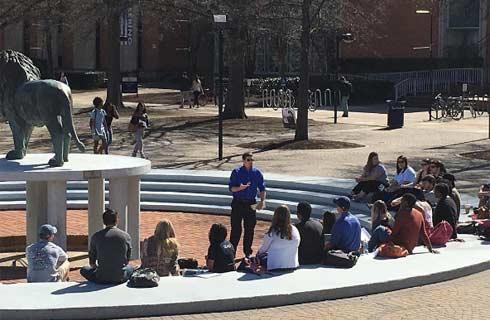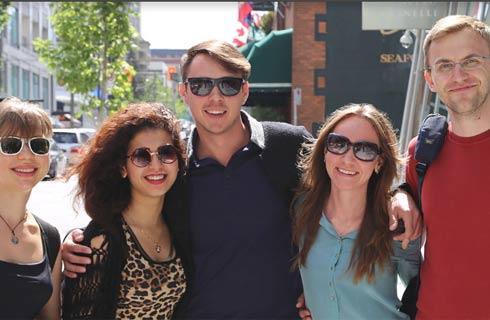国际学生入学条件
You will be asked to enter typical application information such as nationality, GPA, schools attended, etc.
You will be required to upload an accurate unofficial transcript for each school you have attended. Please do not send official copies to the CAM office. Please note that there are only up to three fields for listing schools attended. If you attended more than three, you must upload those transcripts in the writing sample portion of the application.
If you have appropriate supplemental documents such as an undergraduate research paper, awards, etc., upload them in the writing sample portion of the application.
A statement of purpose is required and can be uploaded directly into the application.
At least three letters of recommendation are required. Additional letters are allowed. Recommenders may submit their letters online. Once an application is submitted, recommenders receive an automated email soliciting their letter (you will be prompted to provide their contact information before you submit your application).
Neither GRE General nor GRE subject scores are accepted.
TOEFL iBT - 77 (Writing 20; Listening 15; Reading 20; Speaking 22)
IELTS - 7.0 or higher
展开
IDP—雅思考试联合主办方

雅思考试总分
7.0
- 雅思总分:7
- 托福网考总分:77
- 托福笔试总分:160
- 其他语言考试:NA
CRICOS代码:
申请截止日期: 请与IDP联系 以获取详细信息。
课程简介
Complexity refers to the study of the efficiency of computer algorithms. In this a problem is specified, with the ultimate goals being to determine the greatest efficiency possible for algorithms designed to solve instances of the problem, and to design an algorithm possessing the optimal efficiency.<br><br>For example, consider the problem of multiplying two square real matrices. Here, an instance of the problem consists of two specific matrices. Applying the procedure everyone learns in linear algebra for multiplying matrices, one has an algorithm which multiplies two n-by-n matrices using n3 scalar multiplications, along with slightly fewer scalar additions, for a total number of arithmetic operations proportional to n3. However, this is not optimal for the problem, as algorithms have been devised for which the total number of arithmetic operations is at most proportional to np where p 2.376. Regarding lower bounds, all that is known is that no algorithm for multiplying two square matrices can do so using fewer than n2 arithmetic operations in general. We thus say that the computational complexity of matrix multiplication lies somewhere between n2 and np for p 2.376.<br><br>A full formalization of complexity requires there be an underlying mathematical model of a computer, so that definitions and proofs can possess complete rigor. There are various mathematical models of computers used in complexity, the most prevalent being the Turing machine, but also important is the real number machine, which is the model that best fits the spirit of the example above. Complexity that is fully formalized is known as complexity theory.<br><br>Complexity is widely done in science and engineering, even if not complexity theory. Indeed, it is standard when presenting a new algorithm - even algorithms aimed squarely at applications - to argue superiority of the algorithm by bounding its running time as a function of key problem parameters (e.g., np for p 2.376), and showing the bound beats the bounds previously established for competitor algorithms. Referring to an algorithm's complexity has thusly become commonplace.
展开







 预科
预科 奖学金
奖学金 实习机会
实习机会 在校学习
在校学习 跨境学习
跨境学习 校园授课-线上开始
校园授课-线上开始 在线/远程学习
在线/远程学习














 麦吉尔大学继续教育学院
麦吉尔大学继续教育学院

 圭尔夫大学
圭尔夫大学

 韦仕敦大学
韦仕敦大学

 韦仕敦大学
韦仕敦大学

 西三一大学
西三一大学

 西蒙菲莎大学
西蒙菲莎大学









 美国
美国